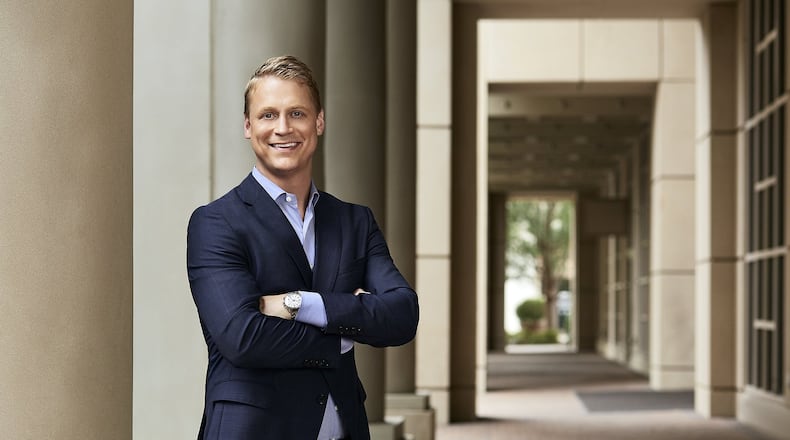Imagine the day-to-day life of a millionaire. What do you see? Valeting Bentleys and Porsches for regular weeknight dinners at Chops or Umi Sushi? Not being caught dead in anything without a designer tag? Weekend jaunts to Sea Island or vacation homes in posh Aspen?
If this description matches your imagination, you’re not alone. But you’re not right, either.
Our perception of millionairedom is highly skewed. Thomas Stanley’s book, “The Millionaire Next Door,” helps bring us back to the reality of how two-comma net worth folks actually live.
In short, they live like everyday people rather than the flashy crew described above.
Stanley’s book was groundbreaking when it was published in 1996, and its themes and research findings still ring true today. “The Millionaire Next Door” is full of information and statistics about millionaires — typically people who weren’t born with a silver spoon in their mouth, rarely came into money through inheritance, and didn’t start Facebook to get rich.
What’s most powerful about Stanley’s book is that it demonstrates how becoming a member of the millionaire club can be a reasonable goal for everyday Americans. And, from my professional experience, it very much is.
Before we dive into joining this tribe, remember, based upon the research from my book, “You Can Retire Sooner Than You Think,” three of the top financial goals for retiring happier — and sooner. These three simple things can help you work toward “richness,” too. The first is to pay your mortgage off before you retire. Secondly, have at least three income streams, such as Social Security benefits, pensions, real estate income, and retirement income. And the third is to have at least half a million in liquid assets.
Let’s move on to the rare birds among us who aren’t as rare as we think. I found an interesting site called MillionaireFoundry.com, which pulls statistics from places like Fidelity Research, Spectrem and others to gather Millionaire Statistics. The data indicates that about 14% of households in the U.S. hold millionaire status. But it’s still quite a feat. According to the same folks, the median wealth of Americans is $65,904, which makes $1 million about 1,500% of the median.
What are some of the characteristics of the rich and not-so-famous, according to Stanley’s book? Most of our friendly millionaire neighbors started in low- to middle-income families and were first-generation millionaires. These folks are likely to have a college degree, still be in their first marriage, and clock 50-plus hours a week on the job, with over half owning a business.
As for wealth accumulation, let’s take another look at those Millionaire Statistics from MillionaireFoundry.com. Studies show leveling up to the seven-figure mark takes time — on average, 32 years. In fact, 80% of current millionaires didn’t hit the net worth mark until they were at least 50 years old.
Still, they made it, and they did so by prioritizing saving and investing. Millionaires save an average of about 25% of their income. And about two-thirds rely on the help of a financial planner to manage their wealth. They believe “smart investing” is a key to their success and hold about half of their investable assets in stocks. Add in significant home equity, and we’re talking considerable net worth.
One key theme from all of the data and figures is that millionaires live their lives below their means. They budget. They spend the time watching the outflow. They aren’t budget hawks; that would spoil some of the fun and make wealth-building a laborious job! But they do keep track of where their money goes. Personally, I recommend committing to sitting down and digging into the numbers once a month. That amount of attention should keep you on track for your wealth journey.
One big question is how deep Uncle Sam reaches his hands into millionaires’ pockets. The answer is: not as deep as you would think. Members of the millionaire club make their assets work for them. Remember, the No. 1 highest-taxed dollar is one you earn as a wage. Our nation’s highest earners pay over 40% of their income to taxes. On the other hand, stocks are subject to zero tax (even as they grow in value) until you choose to sell. Once you do, most capital gains tax is 15%, based on current tax law, or less than half of the wage tax!
How important is it to you to join the ranks of millionaires one day? Are you aiming for those two commas, or are you planning to hit the $500,000 happy retiree benchmark? And where are you on your quest for financial freedom?
In “The Millionaire Next Door,” Stanley talks about Prodigious, Average and Under Accumulators of Wealth. He shortens these three categories into acronyms — PAW, AAW and UAW.
The formula for calculating what type of accumulator you are is easy:
- Multiply your age times your household’s realized pretax income from all sources (except any inheritance).
- Divide this number by 10.
The result is your wealth threshold. Now, compare this figure to your actual net worth to see which category you fall into.
Two times your wealth threshold? You’re a PAW. If you’re right on the mark, you’re an AAW. One-half of the figure means you’re a UAW.
Here’s an example of the math:
Lilly, age 32, owns a vending machine business. She makes $100,000 a year.
- 32 x 100,000 = $3.2 million / 10 = $320,000
She has a net worth of $700,000, counting her savings, home equity, and business value. Her net worth is a little over two times the threshold, so she is a PAW. (Here’s a spoiler — being a PAW means you’re among the top 25% of net worth accumulators!)
It’s difficult to argue with the habits of Millionaires Next Door. Their habits, outlook and discipline can bring you financial security and “real” wealth. Meaning things like health, longevity, family, self-reliance, respect, honesty, achievement and happiness!
“The Millionaire Next Door” is timeless; the themes Stanley identified of millionaires 25 years ago still ring true today. While every footpath to joining this tribe looks different, the overarching walk has incredibly similar guideposts.
Anyone can start this journey, no matter your age or financial fingerprint right now. Try some of the practices of Millionaires Next Door, and who knows? You could be one someday, too. At the very least, these mindsets could change the way you think about money. Or better yet, move up your retirement date. A happy, early retiree — that’s what I call wealthy living!
Wes Moss is the host of the podcast “Retire Sooner with Wes Moss,” found in the podcast app right on your smartphone. He has been the host of “Money Matters” on News 95.5 and AM 750 WSB in Atlanta for more than 10 years now, and he does a live show from 9-11 a.m. Sundays. He is the chief investment strategist for Atlanta-based Capital Investment Advisors. For more information, go to wesmoss.com.
DISCLOSURE
This information is provided to you as a resource for informational purposes only and is not to be viewed as investment advice or recommendations. Investing involves risk, including the possible loss of principal. There is no guarantee offered that investment return, yield, or performance will be achieved. There will be periods of performance fluctuations, including periods of negative returns and periods where dividends will not be paid. Past performance is not indicative of future results when considering any investment vehicle. This information is being presented without consideration of the investment objectives, risk tolerance, or financial circumstances of any specific investor and might not be suitable for all investors. This information is not intended to, and should not, form a primary basis for any investment decision that you may make. Always consult your own legal, tax, or investment adviser before making any investment/tax/estate/financial planning considerations or decisions. Investment decisions should not be made solely based on information contained in this article. The information contained in the article is strictly an opinion and for informational purposes only and it is not known whether the strategies will be successful. There are many aspects and criteria that must be examined and considered before investing.
About the Author
Keep Reading
The Latest
Featured



